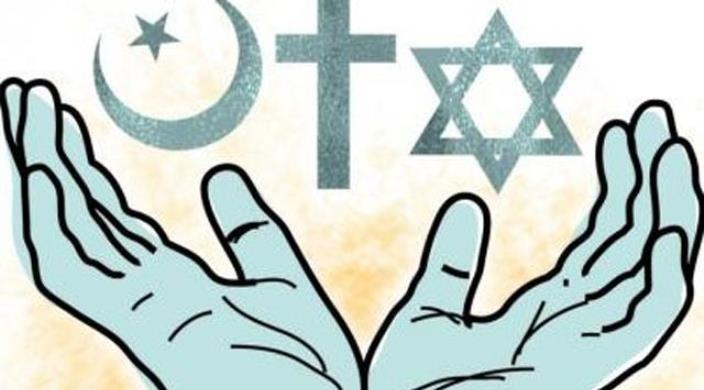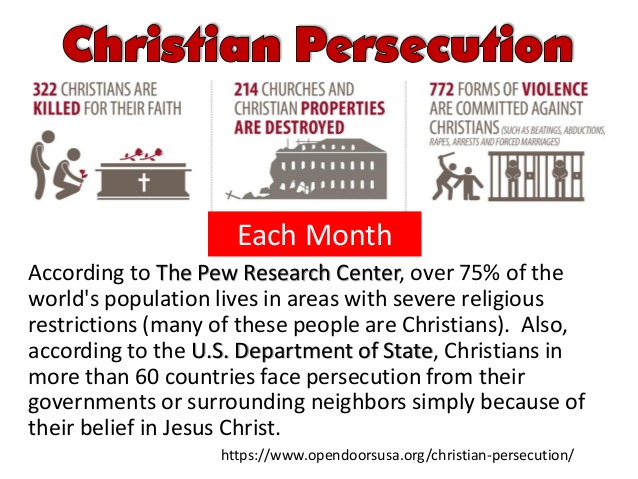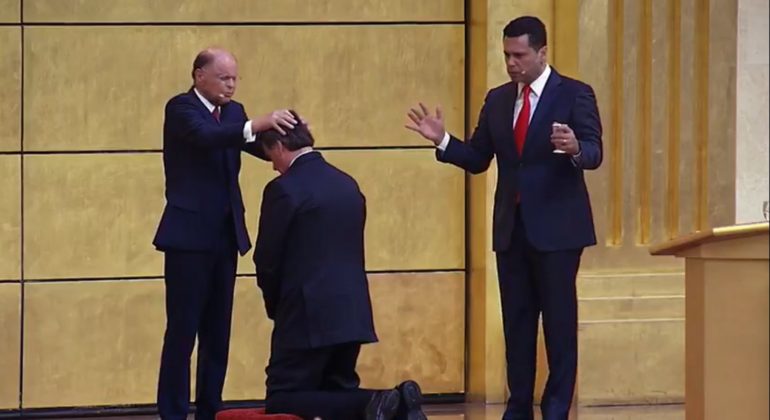RIO DE JANEIRO, BRAZIL – The International Alliance for Religious Freedom will be one of the main subjects of Chancellor Ernesto Araújo’s meeting with the American Secretary of State, Mike Pompeo, this Friday, September 13th, in Washington.
The United States believes the alliance to be one of the pillars of its foreign policy, and Brazil is expected to be one of the body’s founding members.
Cooperation in the offensive against religious discrimination in the world is regarded as a key point of the strategic partnership between the two countries. The initiative aims to defend all religions, but the issue has been particularly embraced by evangelicals and more active Catholics.
“We fully agree with the concept and with the effort to promote religious freedom for all religions around the world,” said Foreign Minister Araújo, who met with US Ambassador for Religious Freedom Sam Brownback on Wednesday, September 11th.
The United States held its second meeting on the topic in July, with the presence of Damares Alves, Brazil’s Minister of Women, Family and Human Rights, and Pastor Sérgio Queiroz, ministerial Secretary for Global Protection.
Damares said she was “particularly concerned with the persecution of Christians,” but mentioned that Brazil would pay special attention to religions of African origin.

Delegations from 106 nations and representatives of different religions took part in the meeting. Countries with a history of religious persecution, such as Iran, China, and Saudi Arabia, did not attend, although others that have also recorded high levels of restriction, according to the Pew Research Center, such as Israel, the Arab Emirates and Egypt, were present.
“People think that fighting for religious freedom is only a struggle for Christians, but this is not true; we deal with all religions – religions of African origin are persecuted in Latin America, Muslims in Europe and, in the Middle East, the greatest target is Christians,” Secretary Sérgio Queiroz told the report. “The fact is, that in total numbers, the Christian religion is the most persecuted in the world.”
A study conducted by the Pew Research Center and published in July this year shows that Christians are the persecuted religious group in the largest number of countries (143), followed by Muslims (140) – both representing the religions with the largest number of followers. According to Queiroz, the US are the foremost advocates of the freedom to discuss faith in a political context.
“There, there is great resistance from religious sectors who want to take religion into the public arena,” he says. “Brazil is a secular country, but this does not mean that religion should be removed from the public sphere, that faith cannot be part of the debate”.
On August 22nd, the UN marked the first World Day of victims of violence due to religion or belief, a celebration proposed by Poland, with the support of the United States and Brazil. At the time, diplomat Nestor Forster, currently chargé d’affaires at the Brazilian embassy in Washington, gave a speech underlining the inclusion of religious freedom in the foundation of the Bolsonaro government’s public policies.
He stated that the Brazilian Chancellor has expressed concern over the persecution of Brazilian christians, both evangelical and catholic. In July, at the time of the ministerial meeting, Ernesto published a text on his blog criticizing alleged attacks by the left-wing against religion. “The leftist project in its current form aims to destroy the family, erase religion and control language to the point of reducing it to a babbling of made-up sentences,” Ernesto wrote.

Countries such as Colombia and Poland with governments in line with Trump are keen supporters of the alliance led by Secretary of State Mike Pompeo, who is evangelical. Brazil’s support would strengthen the US proposal. “Colombia will host a meeting for the Americas this spring. It would be very useful if Brazil also offered to host a meeting,” said Knox Thames, a special advisor to the State Department for Religious Minorities.
“Brazil is an influential player and has relationships with countries like Iran,” Thames said. “It could push for the release of Christian and Bahai prisoners in Iran, urging the country to make reforms”. The issue of religious freedom has also been used by the US as a weapon in its cold war against China.
Pompeo even claimed that China was “the stain of the century” in relation to violence against religion, mentioning the Chinese government’s repression of the Uyghur Muslim minority, Christians and Tibetan Buddhists. Religion is also involved in the trade war between the two countries – sanctions and embargoes have already been applied against Chinese technology companies like Dahua and Hikvision for their participation in the Uyghur surveillance program.
Iran has also been targeted. Country-supported militias charged with violence against Christians and the Yazidi in Iraq have been punished, as have soldiers in Myanmar involved in the attacks on the Rohingya Muslim minority. “In theory, the alliance for religious freedom is positive,” says H.A. Hellyer, senior researcher at the Royal United Services Institute and the Carnegie Endowment for International Peace, “The concern is that the defense of religious freedom be used selectively, and be primarily from Western countries defending Christian communities around the world, rather than actual religious freedom”.

The alliance announced by Pompeo was celebrated by evangelical leaders in the United States. In an article, Tim Head, director of the powerful Christian organization Coalition of Faith and Liberty, stated that Ambassador Brownback travels the world to advocate for people persecuted for their faith and “simultaneously defend other American interests, such as government stability, economic development, and the fight against terrorism”.
The Evangelicals are an important base of support for Donald Trump, who is fighting for re-election, and have influenced several foreign policy decisions, such as the transfer of the US embassy to Jerusalem.

